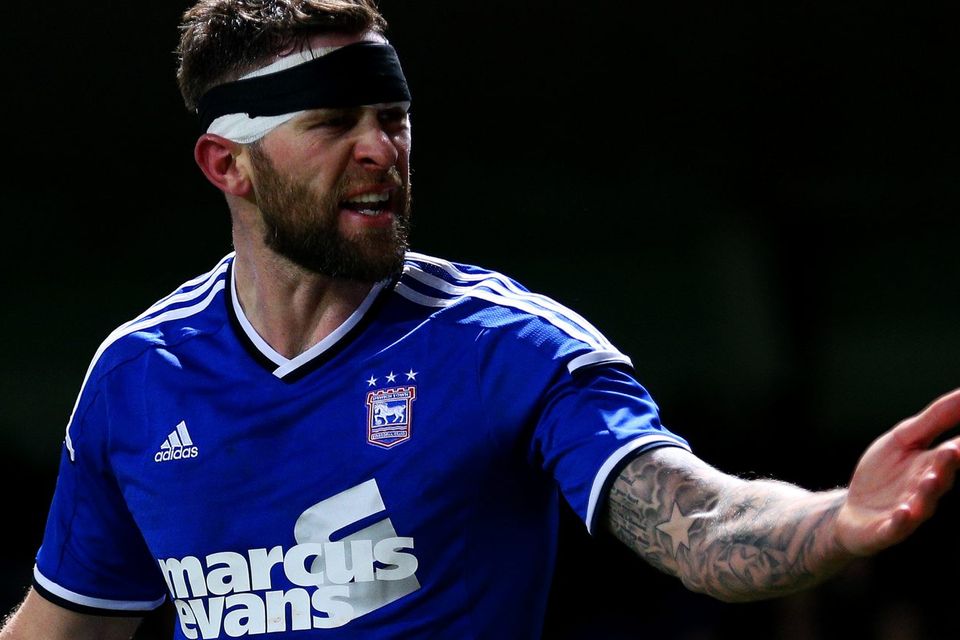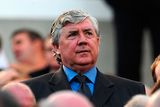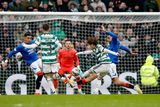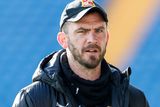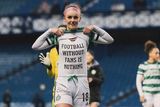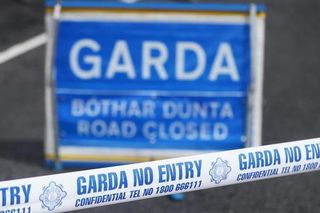Daryl Murphy bouncing back from school of hard knocks
Daryl Murphy shows the scars of battle during this week's FA Cup clash
IN November 2000, Waterford schoolboy side Southend United finished their weekly notes in the Munster Express by offering good wishes to a youngster who had just left their ranks for Luton Town.
"The club would just like to wish the best of luck to Daryl Murphy," they said. "Daryl is every defender's nightmare who scores at least 80 goals a season. He has only scored 16 goals this season already. Best of luck Daryl."
Sometimes, when a player has been in the public eye for too long, you forget just how brilliant they must have been in the first place to reach that stage.
As a teenager, Murphy was a local phenomenon, scoring over 300 goals in his four years with Southend and firing Waterford to victory in the 1998 U-14 Kennedy Cup.
"I remember Dublin getting beat on penalties in the semi and thinking we had a right chance," he smiled on Thursday. They hammered Donegal in the decider. Murphy scored twice, adding to a brace in the final four.
He was turning heads in an era when his locality was producing an abundance of quality players, particularly in the age group just ahead of him. John O'Shea was the star, Jim Goodwin was big news too and the Hunt brothers Stephen and Noel, who he now shares a dressing room with at Ipswich, were also on the scene.
Murphy wound up in the slow lane with an unhappy stint at Luton setting him back. He came home and rebuilt his career with Waterford United in the League of Ireland before heading back across to join Sunderland in 2005. After almost a decade on the UK scene plugging gaps and running channels, most observers reckoned they had his card marked.
They were wrong. At 31, he's scoring goals like a schoolboy again and has already surpassed his best ever English campaign with 17 goals, a tally that leaves him sitting on top of the Championship goalscoring charts.
Confidence
"I can't put my finger on it," he says, "It comes with confidence. You know when to hit it, when not to hit it, when not to pass it. And when you're in form, you'll take more chances, shoot from distance when you might have passed it before."
Murphy and his boss Mick McCarthy have consistently hailed the impact of assistant boss Terry Connor and his one-to-one work on the training ground.
"His stuff is top notch," the student enthuses. "He doesn't just put on a session where you kick it at him, get it back and shoot. You won't have that space to shoot in a game. He's got manikins there, and because he's been a striker, he knows the situations that occur in games. I definitely wish I'd worked with him earlier."
McCarthy, who signed Murphy for Sunderland, feels a sense of vindication too. He remembers travelling to the old Belfield Park to see if the Waterford United attacker was worth a punt. Other suitors, including Ipswich, were eyeing up a move.
"I watched him at the college," he recalled this week. "And I don't think he had his best game that night.
"But he had something. Good pace, good size, good touch in that league. He had a chance of being a player, though, that's what it was. And it's turned out he's proved me right, one of those ones where you get proved right, which is nice.
"Murph always had the basic ability to be a real handful, and he's improved all the little parts of his game, his touch, his pace, his power, his shooting. There's players who that happens with..Rickie Lambert, Grant Holt, they ended up being a better player the older they got. Whatever it is that sparks them off, I don't know."
Ipswich travel to McCarthy's old haunt Millwall today smarting from a poor week with 1-0 defeats to Derby and Southampton in the league and cup respectively. The Saints game frustrated Murphy. "I don't think we played anywhere near the way he can," he sighed.
Speaking at his employer's Playford Road training base on Thursday, he is carrying the scars from that match, a nasty cut above the eye that required the application of an unattractive bandage and delivered some comeuppance after he'd mocked Stephen Hunt for being fitted with similar headwear during the Derby reverse.
Shane Long jogged over during a stoppage to remind him of that.
Murphy used to carry the mental scars of his exclusion from the Ireland squad that prevented him from vying with Long for recognition. It hurt when Giovanni Trapattoni cast him aside in 2008 and brought Caleb Folan - who now plays in Burma - into the fold.
At that juncture, his club career was not exactly going swimmingly. He acknowledges that he wasted a year at Celtic when out of favour - "I don't regret going, I just regret not playing" - and the fact that managers viewed him as an emergency left winger didn't help his stats. McCarthy is the first to really make him the main man. Other bosses promised to do so and then rowed back when they needed his versatility.
What irks Murphy is that Trapattoni never entrusted him with a start. "I thought I did the best I could when I was only being given 10 minutes," he says. "To then just be out of it without explanation. I didn't understand it. I was frustrated and knew I wouldn't play for my country again as long as he was there."
Martin O'Neill's appointment offered a second chance and he kicked off November's friendly with USA next to his club-mate David McGoldrick.
"It went alright," he shrugs. "I was very disappointed not to score a chance I should have put away. But I've enjoyed working with Martin. He's got different training methods that are enjoyable, and all the lads respect him."
His target is to add to his 14 caps, yet he cannot afford to think ahead to the remainder of the Euro 2016 campaign with so much on his plate in the interim in the draining Championship schedule. Ipswich are a point off the top, but there's 21 games to go.
Age will not deter his ambitions for the next stretch.
"Once you hit 30, you realise it doesn't last forever," he asserts. "I appreciate it more these days, I'm enjoying it more and it's showing in my football."
In the dressing room he is now a senior citizen, a long way removed from the kid who found the game easy and then learned post-Luton that he really had to knuckle down to last the course as promising contemporaries from his Kennedy Cup generation fell by the wayside. Advice from his grandfather is fresh in the memory.
"He said when I was starting out that if things aren't going well, give it 100pc and you'll turn it around. Even if you've got all the skill in the world, you've got to work hard or you've no chance."
By sticking with that philosophy, all of Murphy's parts have eventually clicked into place. And, in the process, provided those nightmares that his schoolboy mentors predicted.
